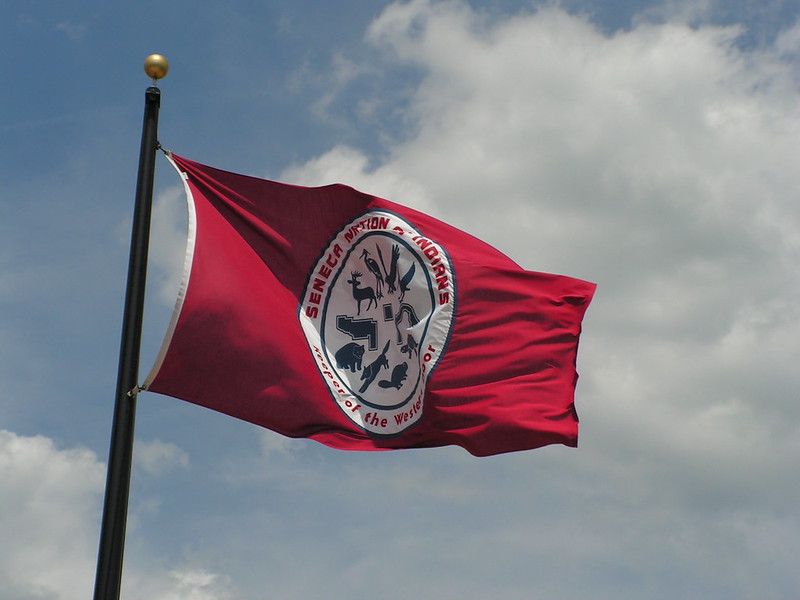
- Details
- By Native News Online Staff
At its first official meeting of 2023, the Seneca Nation Council unanimously approved a resolution condemning New York Governor Kathy Hochul’s veto of a bill that would have protected unmarked burials of Native American ancestors from unintentional excavation.
The resolution from the weekend council session denounces Hochul’s veto of the Unmarked Burial Site Protection Act, saying it “demonstrates an utter disregard for the fundamental rights of Native Nations, Native people, and all New Yorkers.”
The resolution also authorizes the Tribe’s president to submit a resolution to the National Congress of American Indians and the United South and East Tribes for their support.
“The importance of the Unmarked Burial Site Protection Act to Native people cannot be overstated, and its rejection by the Governor was an affront to Native Nations, our people and our ancestors,” Seneca Nation President Rickey Armstrong, Sr. said in a statement.
The legislation would have required the “cessation of all ground disturbing activities upon the discovery of a burial ground, human remains or funerary objects” and would have further required a determination of whether the remains were of Native American origin and, if so, the remains would have been returned to the Native Nation from which they likely originated.
Both the New York State Senate and Assembly passed the legislation last spring, but Hochul waited to veto it until Dec. 30 as the clock ticked down on 2022. The veto assured that New York would remain as one of only a handful of states that don’t have the protective measures in place.
“The Legislature acted to protect our sacred sites and to extend to Native Nations the dignity and respect we deserve. Every vote cast was in support of the bill. All that was needed was the Governor’s signature,” Armstrong said in a statement.
Instead, the state put property and development interests in “priority positions” over people, Armstrong said.
“The Seneca people have lived, raised our families and been laid to rest in our ancestral lands from time immemorial. Because of our forced relocation from our expansive ancestral lands to our present-day territories over hundreds of years, the final resting places of all of our ancestors is likely unknowable.
"The Act would have finally given Native communities a true voice in honoring our moral and ethical obligation to protect those most sacred sites from destruction and desecration.”
More Stories Like This
NCAI Passes Two Emergency Resolutions on Immigration Enforcement ActivitiesChickasaw Lighthorse Police Officer named Indian Country Law Enforcement Officer of the Year
Indian Gaming Association Rallies Broad Coalition Against Sports Event Contracts It Calls Illegal Threat to Tribal Sovereignty
Navajo Resources and Development Committee Issues Notice on Livestock Inspection Requirements
American Prairie, Tribal Coalition Files Protest Over Rescinded Grazing Rights
Help us defend tribal sovereignty.
At Native News Online, our mission is rooted in telling the stories that strengthen sovereignty and uplift Indigenous voices — not just at year’s end, but every single day.
Because of your generosity last year, we were able to keep our reporters on the ground in tribal communities, at national gatherings and in the halls of Congress — covering the issues that matter most to Indian Country: sovereignty, culture, education, health and economic opportunity.
That support sustained us through a tough year in 2025. Now, as we look to the year ahead, we need your help right now to ensure warrior journalism remains strong — reporting that defends tribal sovereignty, amplifies Native truth, and holds power accountable.
 The stakes couldn't be higher. Your support keeps Native voices heard, Native stories told and Native sovereignty defended.
The stakes couldn't be higher. Your support keeps Native voices heard, Native stories told and Native sovereignty defended.
Stand with Warrior Journalism today.
Levi Rickert (Potawatomi), Editor & Publisher


